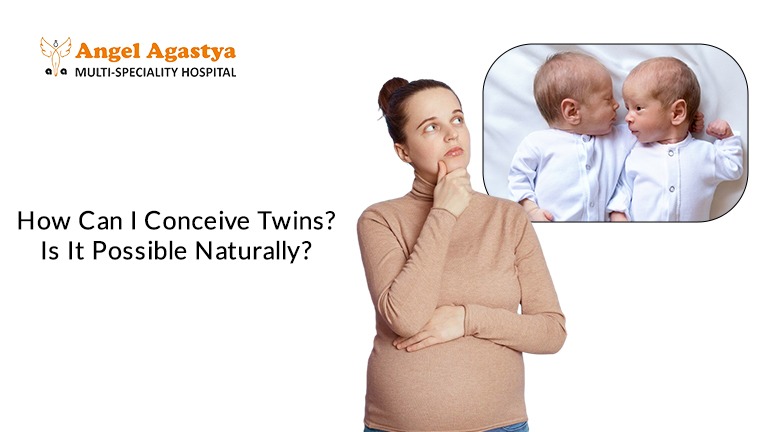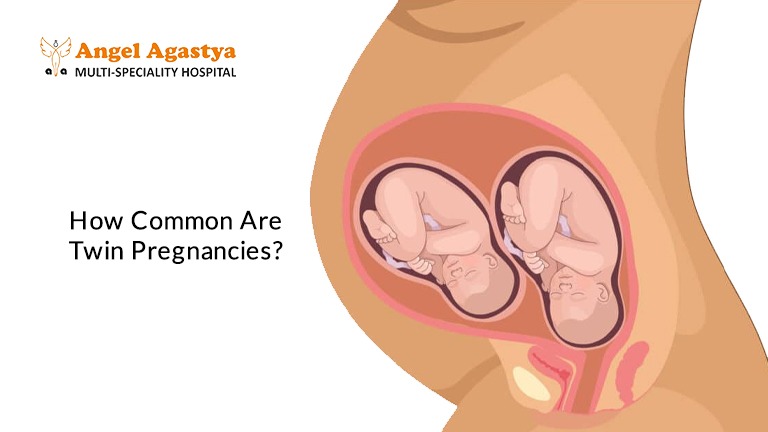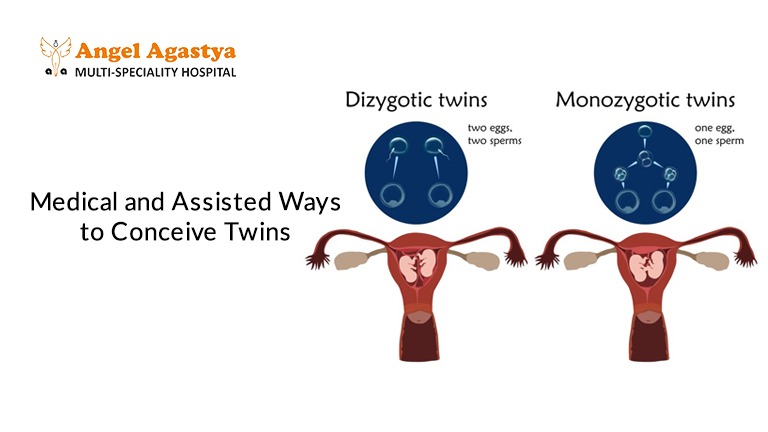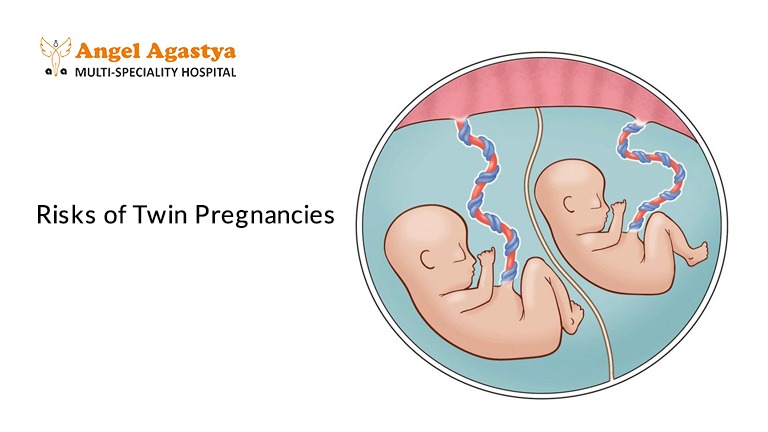How Can I Conceive Twins? Is It Possible Naturally?
Have you ever wondered if it’s truly possible to conceive twins naturally?
The idea of welcoming double the joy and love is a beautiful dream for many hopeful parents. While some believe it’s all about luck or genetics, others are actively seeking natural ways to increase their chances. In this blog, we’ll explore what science says, debunk common myths, and guide you through real, research-backed ways you might be able to conceive twins—naturally and safely.

Introduction
The idea of welcoming two babies at once is a dream for many couples. Double the cuddles, double the milestones, and double the joy—who wouldn’t love that? This curiosity leads many to ask: How can I conceive twins? Is it possible naturally?
Twin pregnancies are fascinating. While many factors influence them, there’s no surefire natural way to guarantee twins. However, understanding the science behind twin pregnancies, the role of genetics, and certain lifestyle factors can help you increase your chances to conceive twins. In this comprehensive guide, we’ll explore both natural and assisted possibilities to help you understand how to conceive twins.
Understanding Twin Pregnancies
Twins occur when two embryos develop in the womb at the same time. There are two main types of twins:
Genetically Distinct Twins
These develop when a woman releases two separate eggs during ovulation, both fertilized by different sperm. They can be of different sexes and are no more genetically similar than any other siblings.
Identical Twins
These occur when a single fertilized egg splits into two embryos. Identical twins share identical genetic material and are always the same sex. They occur randomly and are not influenced by family history or lifestyle.
How Common Are Twin Pregnancies?

Naturally conceiving twins happens in about 1 in 80 pregnancies. Genetically different twins are more common than identical twins. Their occurrence depends on genetics, maternal age, and a few other biological factors. But what naturally increases the chance to conceive twins?
Natural Factors That May Help You Conceive Twins
While there is no guaranteed natural way to conceive twins, some factors may slightly increase the chances:

1. Family History & Genetics
- This is because some women inherit a tendency to release multiple eggs during ovulation.
- If a woman’s family has a history of genetically distinct twins, her chances of conceiving twins are slightly higher.
- However, a man’s family history of twins does not affect his partner’s chances of conceiving twins
2. Maternal Age
- This is because older women produce more follicle-stimulating hormone (FSH), which may lead to the release of multiple eggs.
- Women over 35 years old are more likely to conceive distinct twins.
- However, pregnancy at an older age also comes with increased risks, including complications like gestational diabetes and high blood pressure.
3. Previous Pregnancies
- If a woman has had multiple pregnancies before, she may have a slightly higher chance of conceiving twins.
- Some research suggests that the body may be more likely to release multiple eggs after multiple pregnancies.
4. Race & Ethnicity
- Twin births are more common among African populations compared to Asian and European populations.
- Genetic predisposition plays a role in the ability to conceive twins.
5. Height & Weight
- Studies suggest that taller women and women with a higher body mass index (BMI) may be more likely to conceive twins.
- This is thought to be related to higher levels of insulin-like growth factor (IGF), a hormone that may promote multiple ovulations.
Common Myths About Naturally Conceiving Twins
There are plenty of myths around how to naturally conceive twins, but not all are backed by science.Here are some common ones:
1. Diet & Certain Foods
- Some people believe that eating dairy products, yams, or folic acid-rich foods increases the chance to conceive twins.
- While a healthy diet supports fertility, there is no direct link between specific foods and twin pregnancies.
2. Timing of Intercourse
- Some myths suggest that having intercourse at a certain time during ovulation can increase the chance to conceive twins.
- In reality, the timing of intercourse does not influence the likelihood of twins—only fertilization and egg release do.
3. Special Exercises
- No exercise routine can increase the chances to conceive twins.
- However, regular physical activity supports overall fertility health.
Medical and Assisted Ways to Conceive Twins
If you’re actively trying to conceive twins, medical intervention offers the most reliable method:

1. Fertility Medications
Certain medications can stimulate ovulation and increase the chances of multiple eggs being released. Some common ones include:
- Clomiphene citrate (Clomid): Encourages ovulation and increases the likelihood of releasing multiple eggs.
- Gonadotropins: These injectable hormones stimulate the ovaries to produce multiple eggs, often leading to conceive twins.
2. In Vitro Fertilization (IVF)
- In IVF, eggs are fertilized in a laboratory and then implanted into the uterus.
- Doctors sometimes transfer multiple embryos to increase the chances of pregnancy, which raises the likelihood of twins.
- However, modern IVF techniques often aim to implant only one embryo to reduce the risks of multiple pregnancies.
Risks of Twin Pregnancies
While having twins is exciting, it’s important to be aware of the potential risks involved:

1. Premature Birth & Low Birth Weight
- More than 50% of twin pregnancies result in preterm birth (before 37 weeks).
- Premature babies often have low birth weights, which may require additional medical care.
2. Gestational Diabetes
- Women carrying twins have a higher risk of gestational diabetes, which can lead to complications during pregnancy and delivery.
3. Preeclampsia
- A condition characterized by high blood pressure and organ damage, preeclampsia is more common in twin pregnancies.
4. C-Section Delivery
- Twin pregnancies have a higher chance of requiring a Cesarean section (C-section) due to complications related to fetal positioning.
5. Increased Maternal Discomfort
- Carrying twins can result in more back pain, nausea, and fatigue compared to singleton pregnancies.
Proper prenatal care is essential for women who conceive twins to ensure the best outcomes for both mother and babies.
Ethical Considerations When Trying to Conceive Twins
Wanting to conceive twins is understandable, but health should be the top priority.
- Health Risks: More complications than singleton pregnancies.
- Emotional & Financial Readiness: Double the care, double the costs.
- Medical Ethics: Using fertility treatments just to conceive twins may not be encouraged.
Always consult a doctor before making any decisions involving fertility treatments.
Final Thoughts: Is It Possible to Conceive Twins Naturally?
Yes, it’s possible to conceive twins naturally, but it’s relatively rare. While genetics, maternal age, and previous pregnancies may play a role, there are no guarantees. If your goal is to conceive twins, a healthcare provider can guide you through safe and informed choices based on your health and fertility status.
Whether you conceive one baby or two, the most important thing is to focus on a healthy pregnancy and a positive journey to parenthood.
Conclusion
The desire to conceive twins is a heartfelt one for many couples.While natural methods offer limited chances, assisted reproductive technologies increase the likelihood, but they come with risks. Regardless of the outcome, the ultimate goal should always be a healthy, happy pregnancy.
While genetics, age, and previous pregnancies may play a role, factors like diet, timing of intercourse, or specific lifestyle changes do not significantly impact twin conception. Assisted reproductive technologies (ART), such as fertility medications and IVF, can increase the chances of twins, but they come with potential risks that should be carefully considered.
Ultimately, the primary focus should be on a healthy pregnancy rather than the desire for multiples. If you’re planning to conceive and wondering about your chances of having twins, consulting a healthcare provider is the best approach. They can guide you based on your individual health, fertility status, and medical history. Regardless of whether you conceive one baby or two, ensuring a safe and healthy pregnancy is the most important goal.
FAQs
1. Can I naturally increase my chances of having twins?
While some factors like genetics, age, and previous pregnancies may slightly increase your chances, there is no guaranteed natural way to conceive twins.
2. Does having twins run in families?
Yes, but only genetically distinct twins are influenced by genetics. If a woman has a family history of genetically distinct twins, she may have a slightly higher chance of releasing multiple eggs during ovulation.
3. Do fertility treatments increase the chances of twins?
Yes, fertility medications and assisted reproductive technologies (such as IVF) can increase the likelihood of twins by stimulating ovulation or transferring multiple embryos.
4. Does age affect the chances of having twins?
Women over 35 have a slightly higher chance of conceiving genetically distinct twins due to increased follicle-stimulating hormone (FSH) levels, which may cause the release of multiple eggs.
5. Can diet or certain foods help me conceive twins?
There is no scientific evidence that specific foods or diets can directly increase the chances of twins. A healthy diet is essential for fertility but does not influence twin conception.
6. Is it true that taller or heavier women are more likely to have twins?
Some studies suggest that taller women and those with a higher BMI may have a slightly increased chance of conceiving genetically distinct twins, but this is not a major determining factor.
7. Are twin pregnancies riskier than single pregnancies?
Yes, twin pregnancies carry a higher risk of complications such as premature birth, low birth weight, gestational diabetes, and preeclampsia. Regular medical care is crucial for a healthy outcome.
8. Can I choose to have twins through IVF?
IVF can increase the chances of twins if multiple embryos are transferred, but this decision should be made with a fertility specialist, considering the risks of multiple pregnancies.
9. Can taking folic acid or prenatal vitamins increase my chances of twins?
Folic acid and prenatal vitamins are essential for a healthy pregnancy, but there is no conclusive evidence that they increase the chances of conceiving twins.
10. If I’ve already had twins, am I more likely to have twins again?
Yes, women who have previously conceived genetically distinct twins may have a slightly higher chance of having twins again, but it is not guaranteed.

